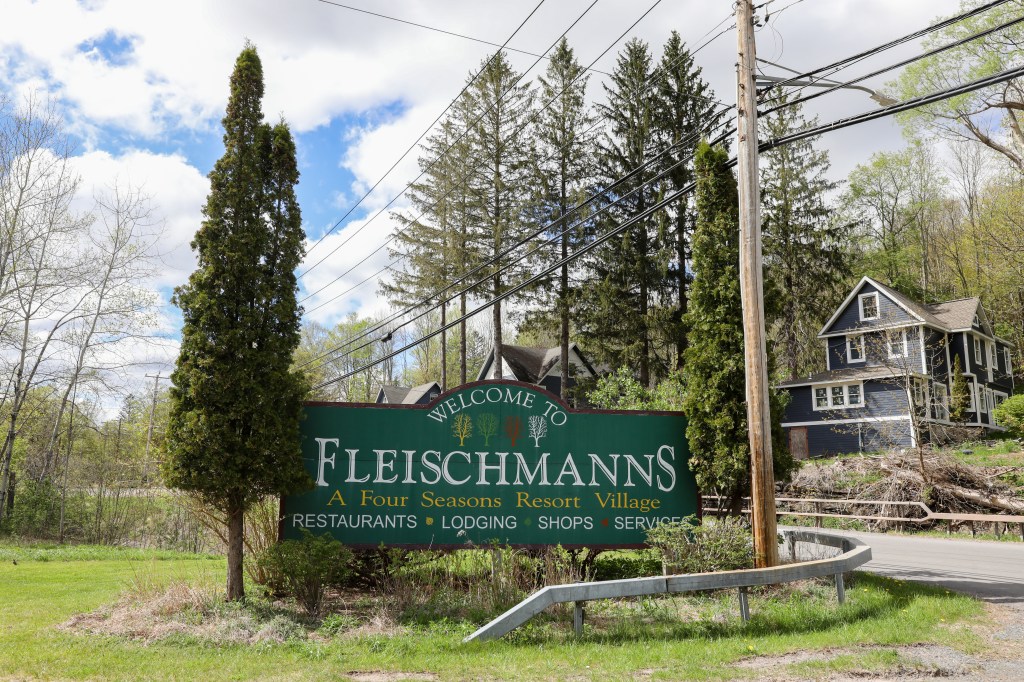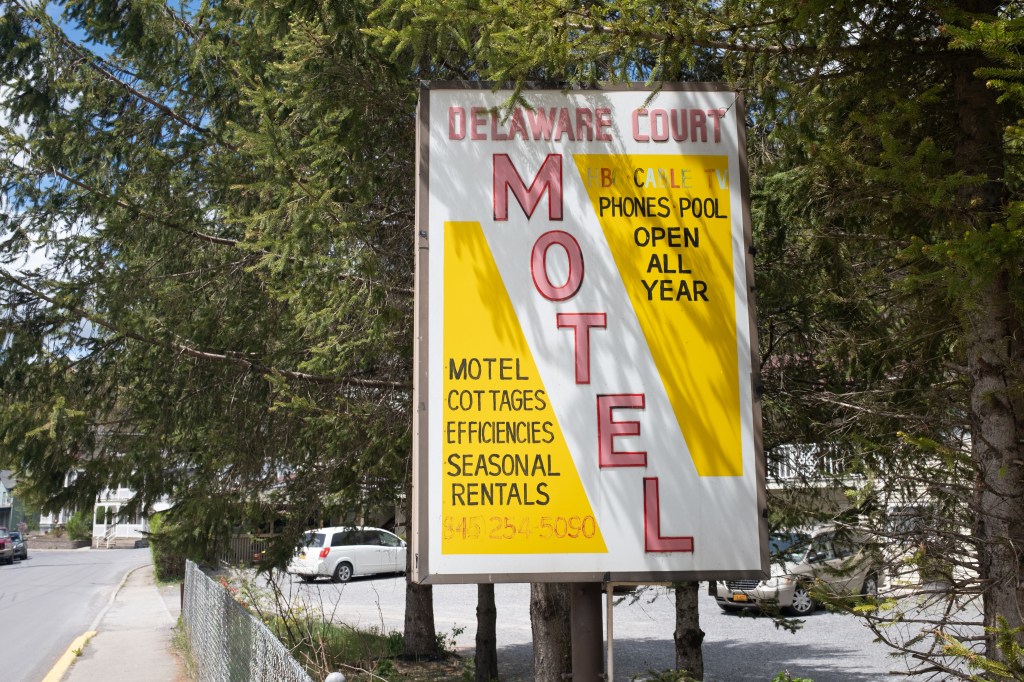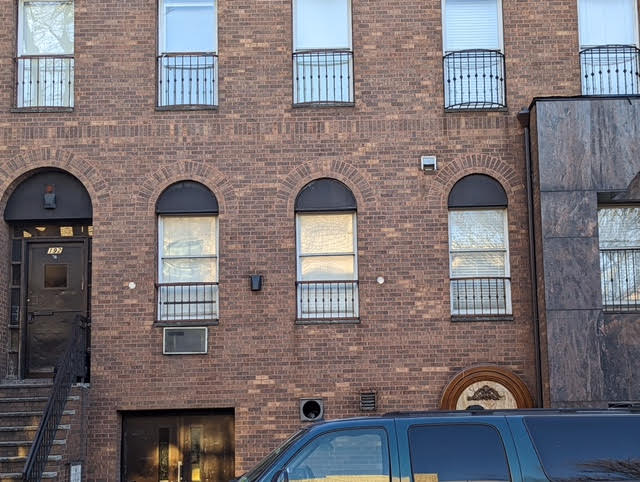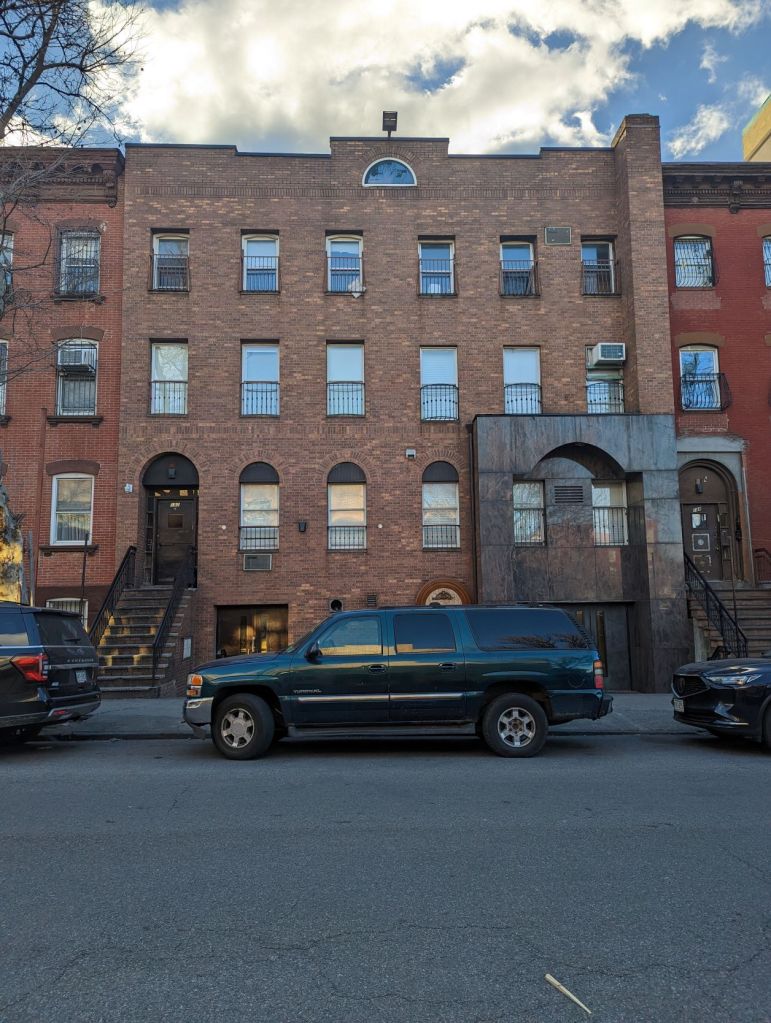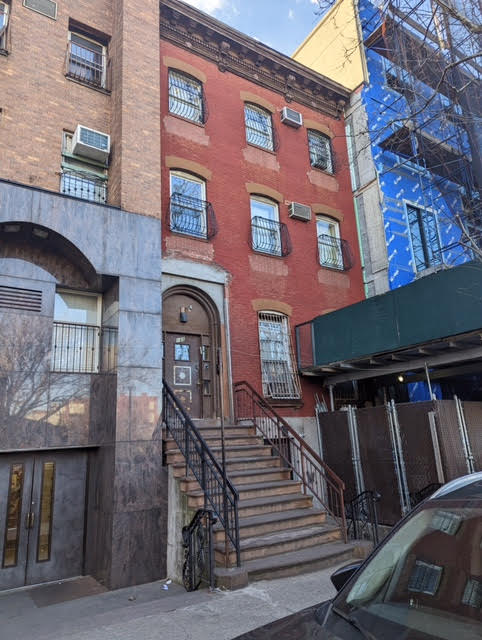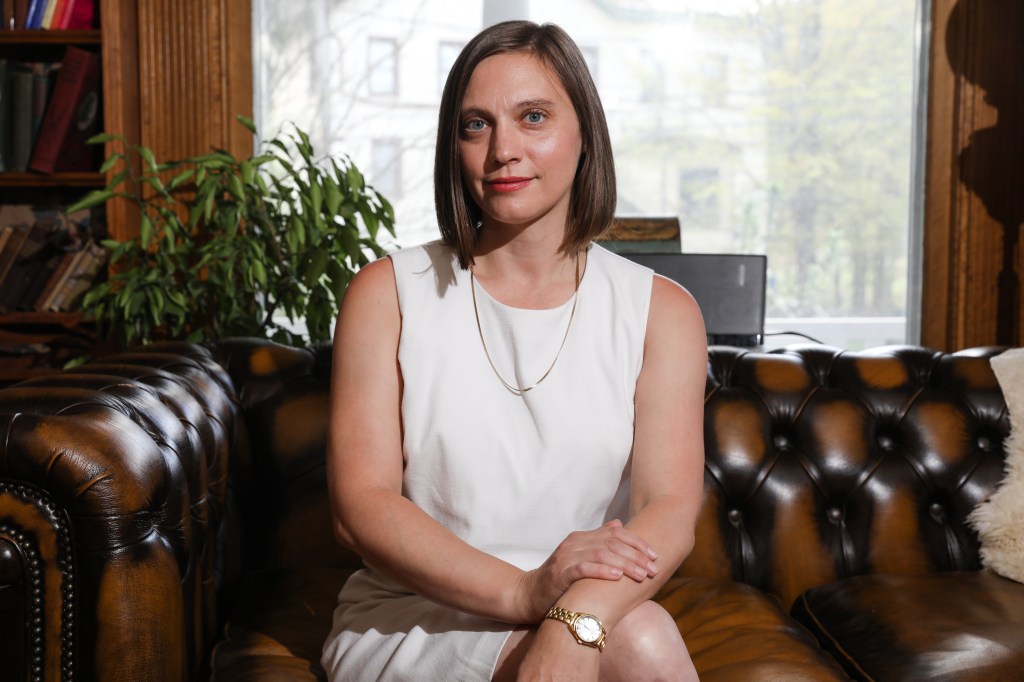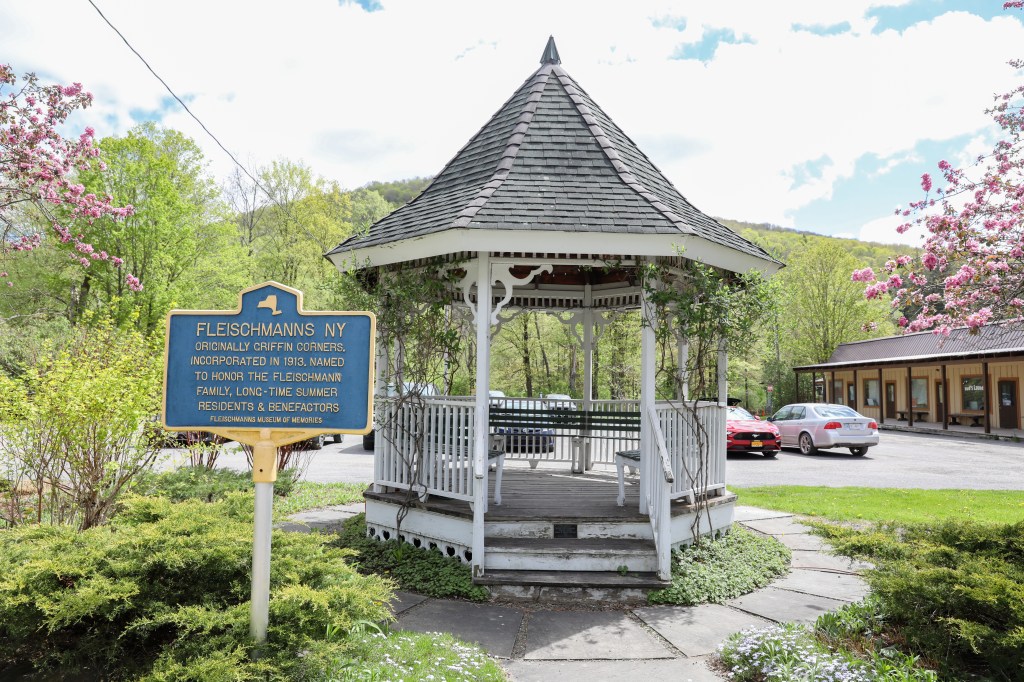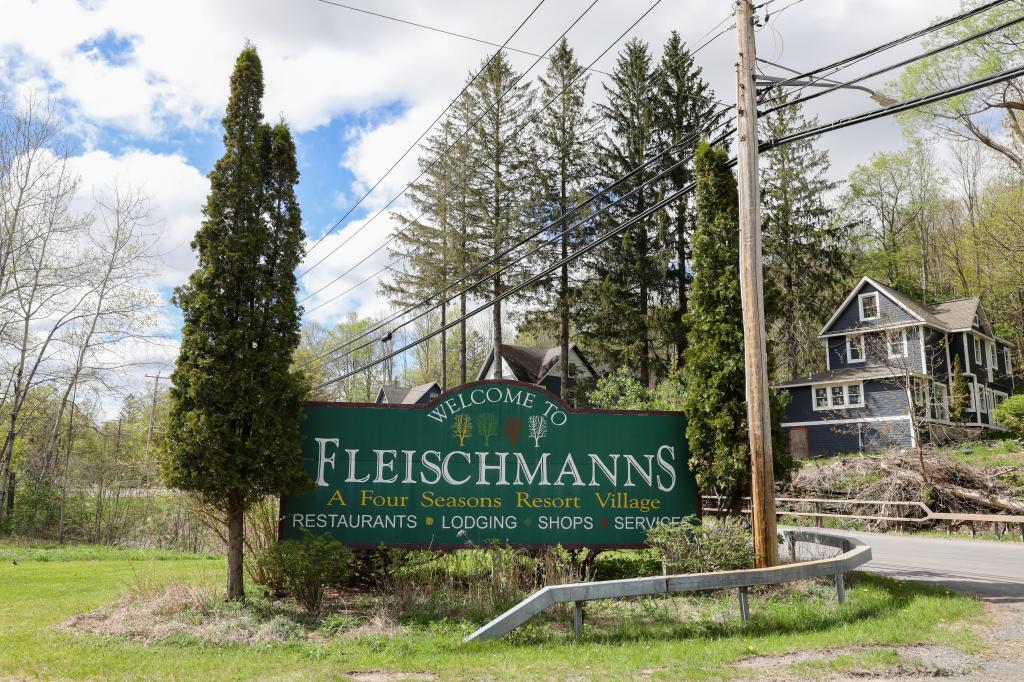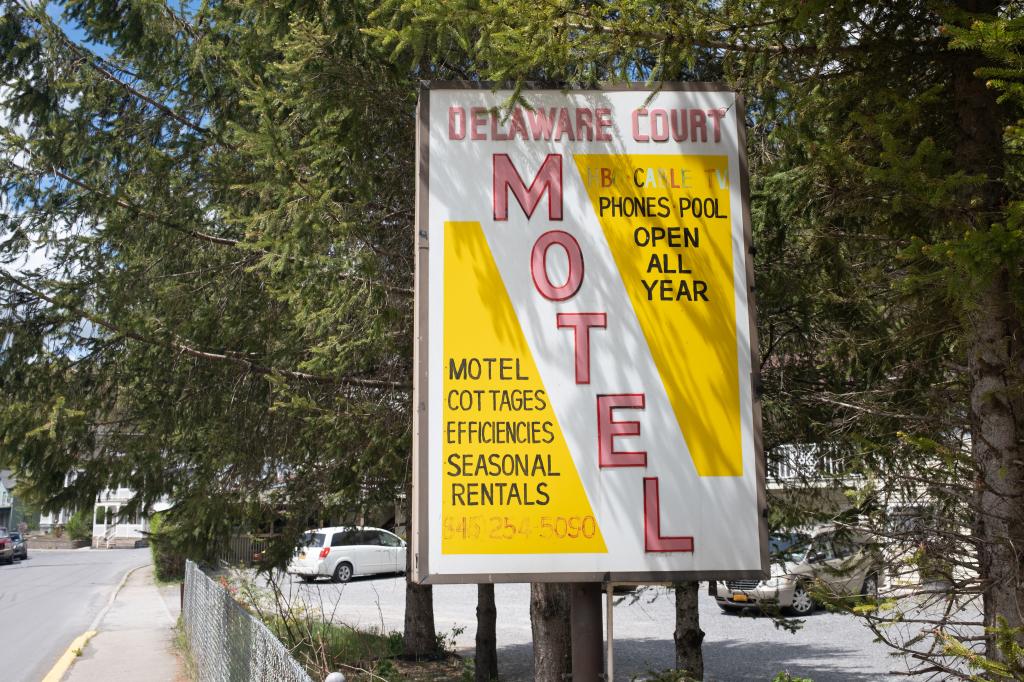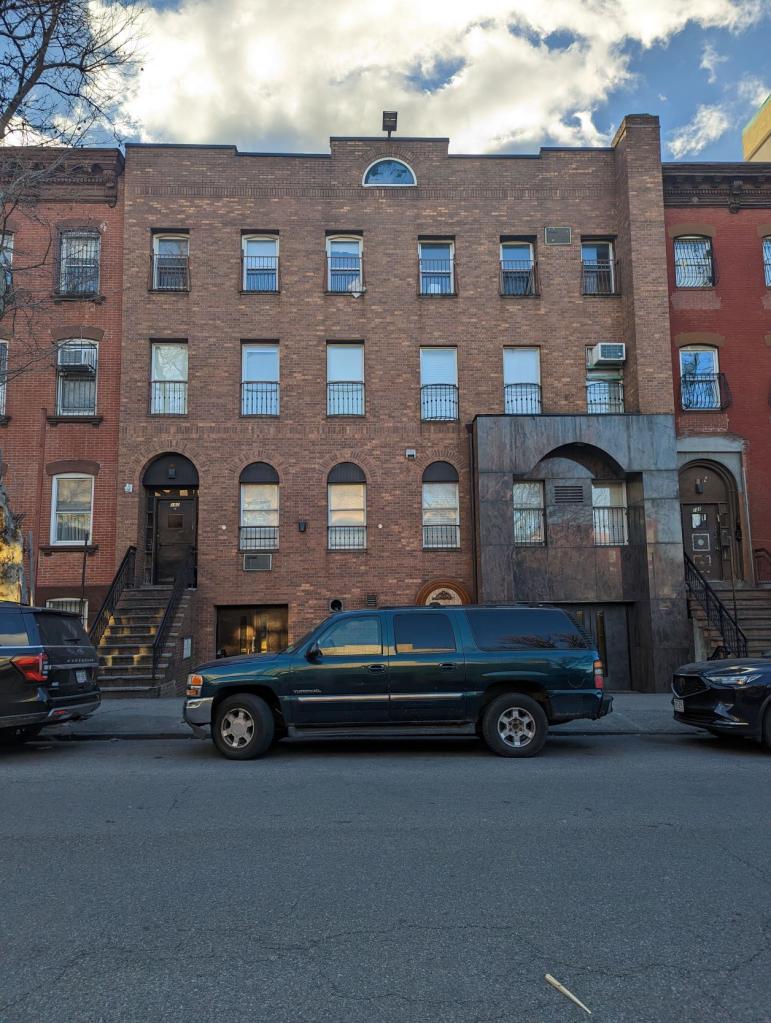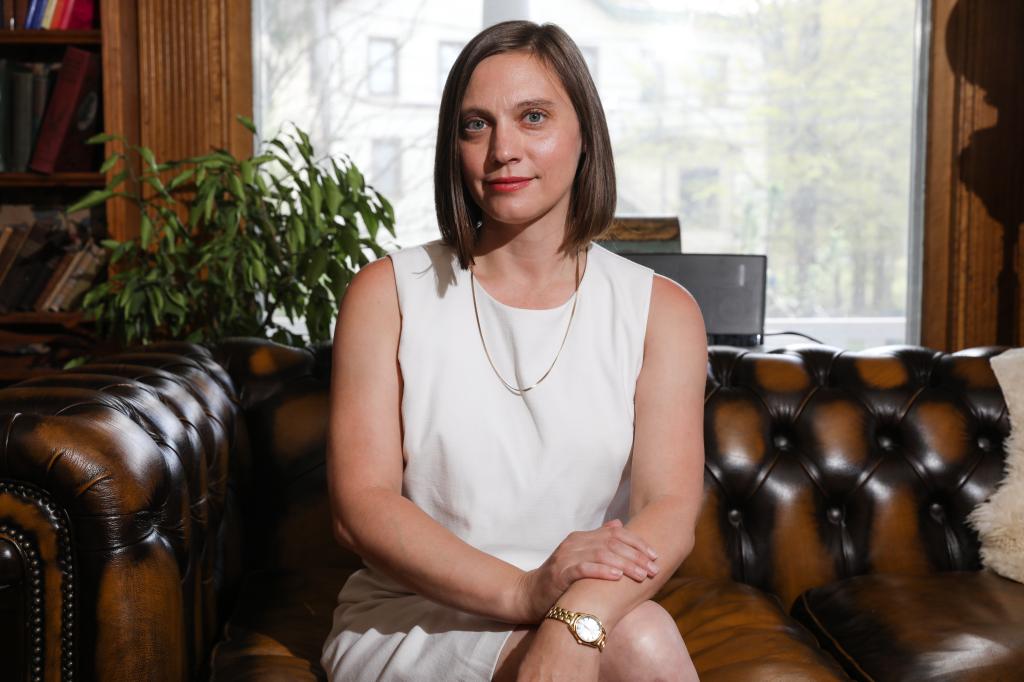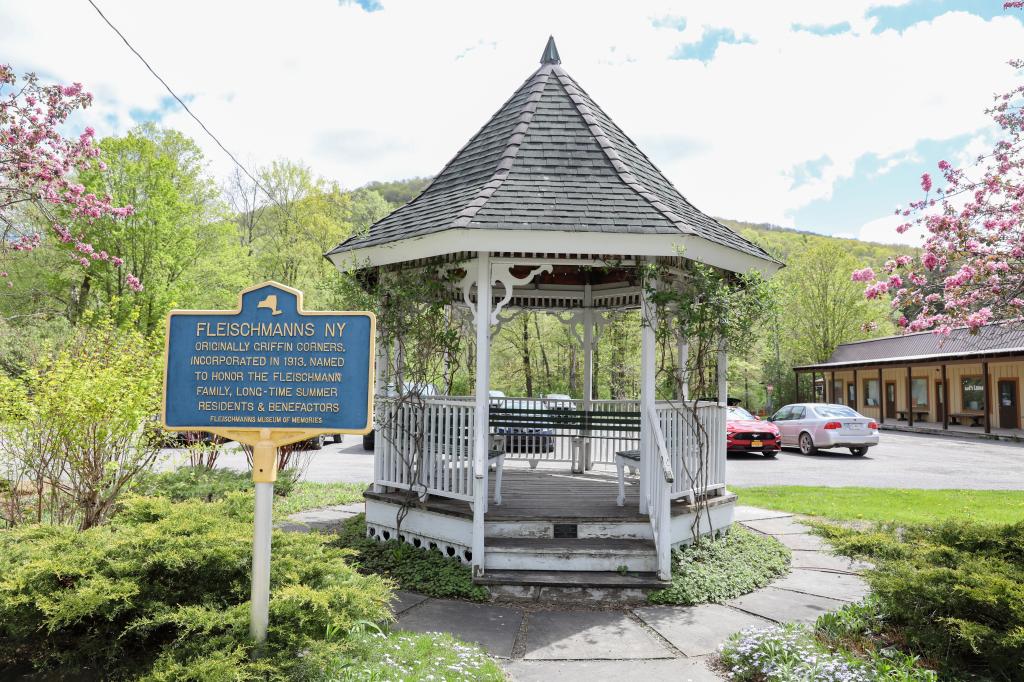Brooklyn rabbi slammed with voter fraud accusations in Catskills, locals fear new religious rules
A Brooklyn-based Hasidic rabbi has landed in a bizarre court battle with a tiny village in the Catskills — whose residents have accused him of stuffing the ballot box in a bid to seize control of the town.
Rabbi Abraham Horowitz, who leads the Kahal Bais Yitzchok synagogue in Brooklyn’s Williamsburg neighborhood, organized a voter registration drive that urged congregants to back his hand-picked candidates for mayor and trustees of Fleischmanns, NY — a resort town two and a half hours north of the city, according to court filings.
Locals worry that the rabbi’s idea is to impose strict religious rules on the entire town.
At a village meeting last year, an Orthodox trustee suggested that the public swimming pool offer separate times for men and women and aired concerns about what types of movies the long-shuttered theater might show when it’s renovated.
This spring, Rabbi Horowitz urged congregants, who for most of the year flock to his synagogue at 192 Keap St. in Williamsburg, to re-register to vote in Fleischmanns, according to court papers.
In response, nearly 100 submitted absentee ballots to Fleischmanns, which has a population of 210.
Others registered to vote using local motels as their address.
Locals sued to stop the ballot count following the March 21 election.
No winner has been declared.
The US Postal Inspection Service confirmed that it has been investigating “allegations of possible fraud involving mail-in ballots,” a spokesman told The Post in March.
Sources said the US Attorney’s Office for the Southern District of New York is investigating the situation following an initial probe by the New York Attorney General’s Office.
Nevertheless, to the town’s amazement, New York State judge Brian Burns sided with Horowitz, ruling on May 11 after a seven-day trial in Delhi, NY, that most of the absentee ballots could be counted.
In addition to local residential properties the congregation owns, Burns cited the “deep connection” the congregants feel to the village and the fact that they “intend on returning to Fleischmanns every summer for the indefinite future.”
Horowitz said he organized the voting campaign because of a “significant increase [of] antisemitism in the village in recent years,” according to Burns’ decision.
Real estate mogul Wigdor Mendlovic — who owns some 17 area properties including hotels and kosher food stores — also aided the voter registrations, according to court filings.
At a Monday hearing, the New York Supreme Court’s Appellate Division heard oral arguments on an appeal by local residents.
The court is expected to issue a ruling within the next couple of weeks and until then ballots can remain unopened, according to a court order.
In the meantime, some legal experts say Burns’ decision was puzzling.
“Spending the summer in a place would not constitute a bonafide residency and it’s legally irrelevant that they intend to return to Fleischmanns,” said James Gardner, a University of Buffalo law professor and election law expert. “This is a ruling that seems a little off the rails to me.”
“It’s very troubling that a religious figure tells people how to vote,” added Richard Briffault, a Columbia Law School professor who specializes in elections, in an interview with The Post. “Religious organizations are tax exempt and so are supposed to be non-political. Telling them to vote a certain way is pushing the envelope.”
Briffault said the dispute could become a landmark case that goes to the state’s highest court.
“Many people do have summer homes and exactly how much connection you need for your summer home is a good question,” Briffault said.
Burns could not immediately be reached for comment.
Leo Goldring, who described himself as Orthodox and said he has owned property in the village for many years though he lives in Monsey, NY for most of the year, confirmed that the Hasidic community wants to establish new regulations in Fleischmanns.
“The Orthodox Jews need changes that Fleischmanns wasn’t used to, certain zoning and parking rules to allow for more parking and more multi-family housing,” Goldring, who also testified at the trial, told The Post.
“It’s a conflict between the residents who live here seasonally and those who live here full time,” he added. “I and others gave up the right to vote in our other residences.”
Rabbi Abraham Horowitz did not return several phone calls seeking comment.
At the trial, Horowitz, who wears a wide-brimmed black hat, sat in the gallery while some 50 congregants testified, nodding affirmatively and shaking his head from side to side as they were deposed and asked questions about where they do their banking and other questions about their residency, according to Fleischmanns residents who also attended.
Never Miss a Story
Sign up to get the best stories straight to your inbox.
Thanks for signing up!
“It was clear he was advising them,” was the view of one person.
The congregants “uniformly voted for the candidates [Horowitz] endorsed,” conceding that they needed assistance completing the ballots and that they did not know the names of the candidates they voted for, in part because many of them do not speak English, according to court filings.
“Whatever the Rabbi wants, we do,” testified congregant Josef Horowitz, who assisted the rabbi in helping the congregants to register to vote and complete absentee ballots, court filings show.
The Kahal Bais Yitzchok congregation owns a residence in Fleischmanns at 556 Main St. — a two-level, white clapboard house with a wraparound porch surrounded by a chain-link fence and flanked by several other homes that the congregation owns.
Congregants do not pay for their accommodations in Fleishmanns, including utilities, taxes, upkeep or even rent, according to court documents.
They all use the rabbi’s P.O. Box for any mail they receive – and they are assigned to housing depending on the needs of the congregation, according to court documents.
The candidates for mayor and trustees – whom the Rabbi did not endorse – won the election handily with a record in-person turnout on election day minus the contested ballots, as The Post reported.
Those candidates, Elizabeth Hughes for mayor, and Yvonne Reuter and Todd Pascarella for trustee, argue that the congregants are seasonal visitors and not eligible to vote in the village.
“It’s unfair that people who don’t pay taxes in our village get to decide how our tax dollars are spent,” said the candidates’ attorney, Daniel Belzil.
New York election law allows for dual residency, but requires voters to choose between their homes for voting purposes, defining residency as “that place where a person maintains a fixed, permanent and principal home.”
In the meantime, Fleischmanns residents launched a GoFund Me campaign to cover the court costs associated with the litigation.
The campaign has raised more than $12,000.
The group also alerted their state and federal representatives about the the election turmoil.
Other communities in Delaware county, where Fleischmanns is located, are carefully watching the drama unfold.
“This case has brought more attention to the issue of seasonal residents and whether they have a right to vote,” Peter Banes, executive director for the New York State Council of Mayors.
Others put it more bluntly.
“I feel that the people who submitted the absentee ballots are not residents of Fleischmanns,” said John Hubbel, mayor of Margaretville, which is part of the same township as Fleischmanns.
Goldring sees it differently, pointing to other communities in the Catskills and Rockland County that are now largely populated by the Hasidic community.
“Certain people in Monsey and Rockland County who didn’t like the changes picked themselves up and moved away,” Goldring told The Post. “There are areas that change all over the US and [Fleischmanns] is one of those areas.”
